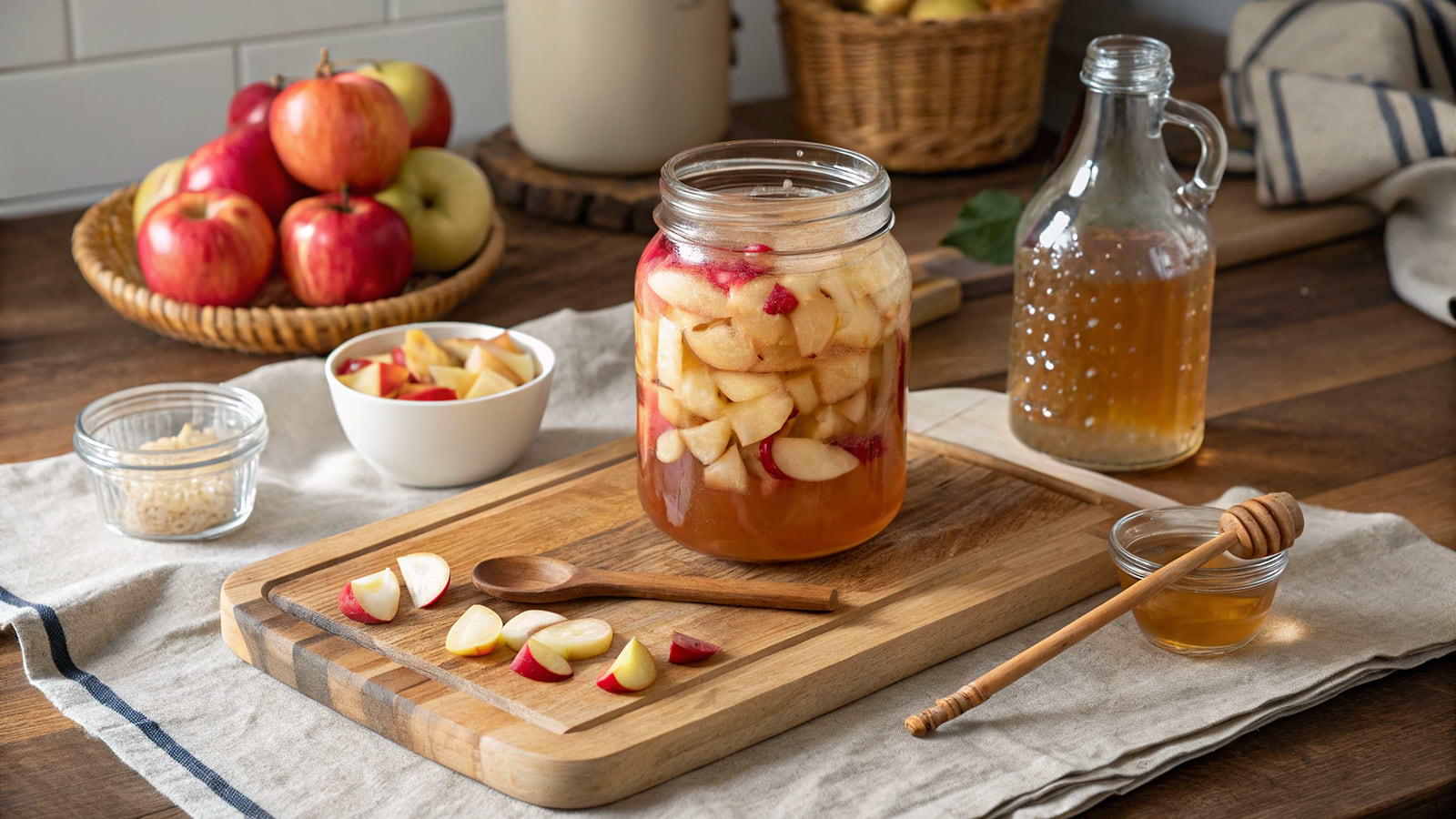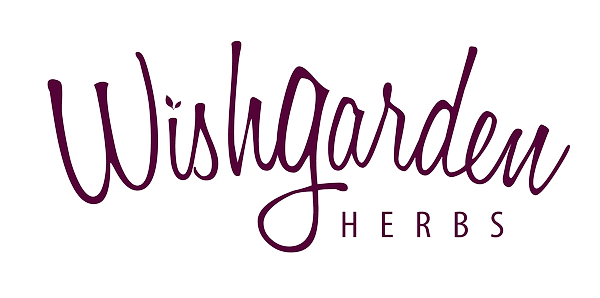
Recipe: Make Your Own Apple Cider Vinegar!
Written by Aubrey McDonaldShare
Transform your apple scraps into liquid gold with this traditional fermentation method that creates nutrient-rich apple cider vinegar right in your own kitchen. This time-honored process harnesses the natural sugars and beneficial compounds found in apple peels and cores, transforming what would otherwise be kitchen waste into a powerful wellness elixir that has been treasured for centuries. The slow, natural fermentation process allows beneficial bacteria and yeasts to convert the apple's natural sugars first into alcohol, then into acetic acid, creating a complex, living vinegar rich in enzymes and beneficial compounds.
Apples, the foundation of this recipe, are naturally rich in pectin, antioxidants, and polyphenols that may support healthy digestion and provide antioxidant benefits. The peels, often discarded, actually contain the highest concentration of these beneficial compounds, including quercetin and other flavonoids that support overall wellness. Apple peels also contain natural prebiotics that may support healthy gut bacteria, making them perfect for creating a fermented product that works synergistically with your digestive system.
The finished apple cider vinegar contains naturally occurring acetic acid and may support healthy blood sugar levels when consumed as part of a balanced diet. Traditional uses of apple cider vinegar include supporting healthy digestion, and many people incorporate it into their daily wellness routines. The "mother" that develops during fermentation contains beneficial enzymes and probiotics that may support a healthy gut microbiome and overall digestive wellness.
This DIY approach ensures you're creating a pure, unfiltered product free from additives and preservatives, while the slow fermentation process preserves the maximum amount of beneficial compounds. The raw sugar feeds the fermentation process, while the natural wild yeasts present on the apple skins initiate the transformation that creates this potent wellness tonic. By making your own apple cider vinegar, you're connecting with ancient food preservation wisdom while creating a versatile ingredient that supports both culinary creativity and daily wellness practices.

Make Your Own Apple Cider Vinegar!
Aubrey McDonald
Rated 2.1 stars by 8 users
Author:
Aubrey McDonald
This traditional apple cider vinegar recipe transforms kitchen scraps into a powerful wellness elixir through natural fermentation. Apples provide antioxidants, polyphenols, and pectin that may support healthy digestion and blood sugar levels. The slow fermentation process creates beneficial enzymes and probiotics while preserving maximum nutrients. This DIY method produces pure, unfiltered vinegar that supports digestive wellness and daily health routines, connecting you to ancient food wisdom.
Ingredients
-
Apple scraps (peels and cores)
-
Raw sugar
-
Water
-
A glass or ceramic container (Mason Jar, crock pot, etc.)
-
A chop stick or some other similar utensil to stir
-
Cheesecloth
-
Mesh Strainer
-
A glass jar or bottle with a plastic lid to store your finished vinegar
Directions
Take all of the peels and cores and put them into an appropriately sized container. I use a 1 liter mason jar for scraps from one pie. If you are processing a larger amount of apples, a crock will work equally well.
Dissolve raw sugar (1/4 cup per quart of water) in water, and then pour over the apple scraps until they are well covered, about a ¼ inch above the top of the peels.
Using your chop stick, move the peels around a bit to release any air bubbles that might be hiding at the bottom.
Place a piece of cheesecloth over the top of the jar/crock and secure with a rubber band.
Let this mixture sit for 1-2 weeks then strain off the liquid, place into a clean container, and let sit for another 2-3 weeks, stirring occasionally.
Taste test your vinegar and store it in a clean jar with a plastic lid once it is to your liking.
References
- Wild Fermentation by Sandor Ellix Katz.
Writer Aubrey McDonald is a Holistic Nutrition Educator, Herbalist, and Medicine Maker at WishGarden Herbs.
For educational purposes only. This information has not been evaluated by the Food and Drug Administration. This information is not intended to diagnose, treat, cure, or prevent any disease, or to sell any product.

















